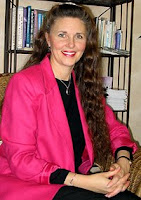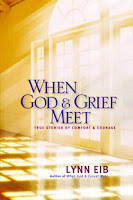 It is time for a FIRST Wild Card Tour book review! If you wish to join the FIRST blog alliance, just click the button. We are a group of reviewers who tour Christian books. A Wild Card post includes a brief bio of the author and a full chapter from each book toured. The reason it is called a FIRST Wild Card Tour is that you never know if the book will be fiction, non~fiction, for young, or for old…or for somewhere in between! Enjoy your free peek into the book!
It is time for a FIRST Wild Card Tour book review! If you wish to join the FIRST blog alliance, just click the button. We are a group of reviewers who tour Christian books. A Wild Card post includes a brief bio of the author and a full chapter from each book toured. The reason it is called a FIRST Wild Card Tour is that you never know if the book will be fiction, non~fiction, for young, or for old…or for somewhere in between! Enjoy your free peek into the book!
You never know when I might play a wild card on you!
Today’s Wild Card author is:
and the book:
When God & Grief Meet
Tyndale House Publishers (January 9, 2009)
ABOUT THE AUTHOR:
 Lynn Eib is a long-time cancer survivor, journalist, and patient advocate who has provided emotional and spiritual support to thousands of cancer survivors and their caregivers. She also facilitates spiritually based grief and cancer support groups. She is the author of When God & Cancer Meet and Finding the Light in Cancer’s Shadow and is the special-features author for the He Cares New Testament with Psalms and Proverbs. Lynn lives in Pennsylvania with her husband and has three grown daughters.
Lynn Eib is a long-time cancer survivor, journalist, and patient advocate who has provided emotional and spiritual support to thousands of cancer survivors and their caregivers. She also facilitates spiritually based grief and cancer support groups. She is the author of When God & Cancer Meet and Finding the Light in Cancer’s Shadow and is the special-features author for the He Cares New Testament with Psalms and Proverbs. Lynn lives in Pennsylvania with her husband and has three grown daughters.
Visit the author’s website.
Product Details:
List Price: $12.99
Paperback: 208 pages
Publisher: Tyndale House Publishers (January 9, 2009)
Language: English
ISBN-10: 1414321740
ISBN-13: 978-1414321745
AND NOW…THE FIRST CHAPTER:

Chapter 1: TRUSTING THE MAGNETIC POLES OF THE EARTH
Let’s be honest: I never wanted to write a grief book and you never wanted to need one.
Frankly, I like movies with happy endings, fairy tales where everyone lives happily ever after, and answered prayers for miracle healings. But right now you and I are past all those hopes and dreams. Instead we are faced with harsh reality.
I don’t know your exact circumstances. Perhaps this enemy called Death snuck up and unexpectedly
stole away your loved one. Or perhaps you had been expecting its arrival for some time. Either way it was an unwelcome intruder which brought the ending you never wanted to see.
So I do understand that you’d rather not be in the position to need this book. But if you picked it up for yourself, I’m honored you have chosen to take my words along with you on your grief journey. If someone gave you this book, I’m praying you’ll be just curious enough about what will happen when God meets your grief that you’ll keep reading. And if you’re not quite ready to read yet,
that’s okay with me. Just put the book aside (hopefully on the top of your pile!). I believe that sometime in the coming weeks you’ll know you’re ready. I’ll still be here for you then.
It might seem strange for me to say I didn’t want to write this book. After all, I am a journalist, and writing normally gives me great joy. I write and speak mostly on the topic of faith and medicine, drawing on my years of experience as a patient advocate offering emotional and spiritual support to cancer patients and their caregivers. As a longtime cancer survivor myself—I was diagnosed with advanced colon cancer at the age of thirty-six in 1990—I love working in my oncologist’s office encouraging those facing this dreaded disease. It can be a very sad job because more than half our patients die from their cancer. But at least some become survivors, and there’s always a glimmer of hope that even those with dire prognoses might defy the odds.
With grief, there’s no such glimmer. Nothing I write will change the reality of the loss you are mourning—which is why I was reluctant to write this book. But while my words can’t change your past, I believe these true stories from others’ grief-storms will give you comfort in your present and courage for your future.
These stories come from people of all walks of life who have experienced many kinds of difficult losses. Some have lost loved ones to cancer and heart attacks; others have had their worlds ripped apart by a car accident, a plane crash, a suicide, and even a murder. I have no doubt you’ll find at least one person facing a grief storm who has feelings very similar to yours.
The focus of the stories is not on how the loved ones died but on how those left behind are finding the strength to continue living without them. My hope is that these stories will help heal your heartache as much as they have mine.
I started feeling especially helpless dealing with grief a few years ago as I watched a march of mourning people come to my office searching for answers, direction, and peace after their loved ones passed away. Many had attended my Cancer Prayer Support Groups with their loved ones and really missed the encouragement those groups offered them. I kept sensing God asking me to start a similar group for grievers, but if you’ve read my other books, you know I’m not always eager to say yes to the hard things God calls me to do. (If you haven’t read my books, let’s just say I tend to think I have things all figured out and can convince the Almighty my way is right!)
Starting a grief group sounded really depressing to me. Granted, starting a cancer support group sounded really depressing to me back in 1991, and it turned out to be an incredible joy, but I was certain this time that a grief group definitely would be depressing.
Yet the march of mourners continued to come through my office door, and I found myself spending more and more time each day offering comfort and consolation. I also was having a harder time dealing with my own grief as the deaths of my patient-friends began to add up. Every week another one would die; sometimes a couple of friends would pass in the same day.
God kept tugging on my heart, and I finally asked my boss, Dr. Marc Hirsh, if it would be okay for me to start a grief group at the office. I could tell he really didn’t see the necessity of such a gathering, but if I wanted to do it, he wouldn’t say no.
So I sent out notes to my grieving friends, inviting them to come to a group meeting at our office. Bringing a bunch of sorrowful souls together in the same room still seemed like a depressing plan—especially because I was powerless to change their painful reality.
But I almost had forgotten that Someone else was going to show up. From the very first grief group, it was obvious to me that God was going to do something special in our midst. Sure, there were plenty of tissues and tear-filled memories, but there also were laughs and comfort-filled words. Instead of being depressed by hearing each other’s stories, we all felt just a little better as we realized we weren’t quite so alone. Instead of drowning in our own self-pity, grievers reached out, as if we were throwing life preservers to one another. And instead of feeling far from God, we began to sense His love was very near.
Now, more than five years after that first meeting, the grief group members enjoy each other so much that we also meet monthly for breakfast and dinner and have gotten together for picnics, shows, and concerts. An evening group has been added for those who can’t come during the day. And my boss thinks facilitating our ministry to grievers is one of the more important things I do
in the office and one of the best ways our patients’ families can continue to see God meet their greatest needs.
So my prayer for you as you read these pages is that you’ll feel as if you’ve been to some really good support group meetings. You’ll have to add great snacks and jokes if you want them to be more like our group. (Yes, I said jokes. I start every meeting with them because I have found that grievers usually haven’t had much to smile about and need a safe place to learn to laugh again.)
You can “go” to a support group meeting once a day, once a week, or once a month depending on how quickly you read this book. You’ll know what the right pace is for you. (And if you just can’t put the book down, go ahead and have a marathon meeting—but after you finish you’ll probably want to come back now and then to give the words a chance to really soak in.)
As we walk this grief journey together, I think you’ll discover that many others share your deep feelings. And while I can appreciate the popular psychology that feelings are “neither right nor wrong,” I also know that feelings do not necessarily mirror God’s undeniable truth. I witnessed this dilemma of strong feelings at odds with facts a few years ago when my husband and I were out
on a boat with my boss, Marc, and his wife, Elizabeth.
The four of us had set out for our annual Labor Day weekend cruise on their thirty-two-foot Bayliner, despite rather foul-looking weather. We were headed up the Chesapeake Bay to a scenic, lively marina called Skipjack Cove on the Sassafras River of Maryland’s eastern shore. Elizabeth had checked with her brother who lives right on the Gunpowder River leading into the Chesapeake,
and he had assured us the weather reports didn’t look that bad, despite a hurricane that was heading northward up the coast. (We later learned he had accidentally listened to the wrong forecast.)
So we took off, knowing that Marc and Elizabeth were seasoned boaters—although the whitecaps on the usually calm river should have been our first clue it wasn’t a good idea.
We had a short two-hour cruise ahead of us, but it wasn’t long before the whitecaps turned into three-foot waves. The wind whipped up, and then the thunder, lightning, and rain came. At first we all laughed and enjoyed the warm rain soaking us as the boat pounded through the waves. But then I stopped laughing, and my stomach started rebelling. Elizabeth handed me a supply of Ziploc bags, which I started filling. The waves were now five feet high and crashing clear over the top of the
boat’s windshield, drenching us. It was nearly impossible for Marc to see out of the rain-splattered windshield, and my husband and Elizabeth were trying to read the navigational charts and look for the numbered buoys, which would keep us in the correct channel away from large shipping vessels, shallow water, and crab pots. We were too far out to turn back toward home, yet not sure
we could make it to our planned destination.
And then it got really bad.
Marc announced that according to the boat’s compass we were headed in exactly the wrong direction: south when we should have been heading north.
The rest of us were sure we hadn’t turned around—Elizabeth was especially positive we were still pointing in the right direction. She was convinced she would have noticed if the boat had made an about-face. From past experience, I knew she usually was right whenever the two of them had a disagreement about boating.
The three of us looked at Marc, waiting to see what he would do. (Well, I didn’t look long because I was busy praying there were enough Ziploc bags.)
After a long pause, Marc posed his now-famous question: “Should I trust my wife . . . or the magnetic poles of the earth?”
It wouldn’t have surprised me if he’d gone with Elizabeth’s feelings because she was so adamant about them, but his scientific brain won out and Marc made a 180-degree turn with the boat.
Within a few moments, we sighted buoys, confirming that we, indeed, had been going in the wrong direction despite all of us “feeling” otherwise.
The storm raging around us had distorted reality, and our feelings had fallen fickle.
The same thing can happen in the storms of grief. We can feel as if we are completely alone or without purpose or unable to cope. These are the times we need a compass—something that always will steer us in the right direction. Don’t worry; I’m not suggesting that I’ll be your compass. After half a century of living, I continue to be directionally challenged. (My husband still cringes when he recalls that I once described Spain as being to “the left” of Germany!) Besides, you probably don’t need one more helpful person in your life telling you what you should (or shouldn’t) be doing.
What I am suggesting is that the God of the universe has a special affinity for brokenhearted people, and His words are the perfect compass for grievers. A magnetic compass always will point you to the North Pole, and God’s Word always will point you to His unchanging truths and promises.
The LORD is close to the brokenhearted; he rescues those
whose spirits are crushed. Psalm 34:18
He heals the brokenhearted and bandages their wounds.
Psalm 147:3
As our “group” facilitator, it’s not going to be my job to try and solve your problems. I can’t change the reality of your loved one’s death—no one can. But I hope to show or perhaps remind you that a deeper spiritual reality transcends our earthly reality. I’ll do it by pointing to God’s Word as your compass of undeniable truth. If you already think of the Bible as your guide to life, I know you’ll appreciate these tender reminders. But if you’ve not seriously given God’s Word central importance in your life, I hope you’ll give it a try now. You really have nothing to lose and everything to gain.
I weep with sorrow; encourage me by your word.
Psalm 119:28
When doubts fi lled my mind, your comfort gave me
renewed hope and cheer. Psalm 94:19
And the truth of that second verse is the reason I decided I would write this book I never wanted to write—because God can supernaturally comfort and bring renewed hope and even cheer to those whose minds are filled with doubts and whose hearts are filled with grief.
If you want a book by a psychological expert, you’ll have to find an author with a lot more initials after his or her name than I have. If you want in-depth theological answers to the questions of suffering and dying, you’ll need to locate some of the resources I’ve listed in the back of this book. But if you want someone to ride with you in your grief-storm and read the compass, then I’m your person. For some reason that only God knows, I believe He has entrusted me with a message for
mourners. And as I share with you God’s words to the brokenhearted, I believe you will see that when God and grief meet, His power, peace, and presence are bigger and more real than our uncertainties, sorrow, and loneliness. He is able to be our guiding compass.
The LORD will guide you continually, giving you water
when you are dry and restoring your strength.
Isaiah 58:11
The LORD says, “I will guide you along the best pathway
for your life. I will advise you and watch over you.”
Psalm 32:8
Your word is a lamp to guide my feet
and a light for my path. . . .
I have suffered much, O LORD;
restore my life again as you promised.
Psalm 119:105, 107
Like Marc as he captained our boat during that stormy trip, it’s your choice whether or not to trust the magnetic poles of the earth.
TAKE COMFORT: Grief may distort reality, but there is a deeper spiritual reality that always can be trusted.










